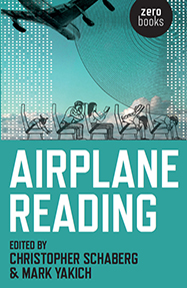In April 2012, I went back to the place I was born: Guinea-Bissau, a small West African country. It was definitely an emotional trip, as I hadn’t seen my father for a year and things had not been good at all. Moreover, the country was undergoing tremendous political upheaval; on April 12, 2012, there would be a military coup. My dad has been involved in politics for as long as I can remember, and presently he is the spokesman for the former opposition party. Growing up I saw him as a hero trying to fight for what is right, but over time such a picture gets a bit blurry.
So there I was, after a week of crazy duties—getting shots, getting my birth certificate, changing money, dealing with my studies and rehearsals, and packing. Finally, I was waiting in the concourse ready to fly. I became very anxious imagining how the reunion with my dad would go. I wondered what I would say, whether he would be the same, and would we be okay.
But I’d forgotten how flights to Africa are always a process. It had been six years since I had been there, having left in 1998 during the civil war, and having only gone back once since. So the process of flight began. Security is a complicated: on an African flight people assume that everyone is going to take the most outrageous things, and the line to get on the plane...it doesn’t really exist. Then the flight was delayed (as usual), and when it finally boarded everyone rushed to get on. I sat there thinking: Why? The seats are assigned, so the flight is only going to take off when all of us are in our respective seats.
At last we all boarded and the plane took off. An hour passed and the air grew thicker by the minute. I felt a tension that is hard to explain. I fell asleep for half an hour. When I woke up, the plane had turned into a conference room. Full of chairs, tables, papers, phones, laptops, pens, post-its, and files. The flight attendants had become secretaries. Almost all of the passengers were deep in political discussions.
I felt I was dreaming, so I closed my eyes and try to force myself to sleep. Ten minutes later I woke up it was all the same. Flight attendants were still secretaries, passengers were still political activists. I thought I might as well contribute. And so, acting as my father would, I sat at the opposition side of the table.
As in all developing African countries, politics in my home country is a long process. Our discussions involved topics of equality, development, population, sanitary conditions, and other basic structures. The prime minister was a whole topic unto itself, as he is a man with almost no education who made his was to the top through sheer corruption. In fact, things had gotten so bad that the country had no electricity at night.
We talked and talked—for the rest of the four-hour flight—and in the end I realized I was going back at the worst possible time. Not for me and my dad or even the opposition, but for the country. It is illuminating, to me, that airplanes and flights can do this—show you what’s most important or even predict part of what is yet to come.
When I departed the plane, I saw my dad almost immediately. The first thing he told me was the myth of Guinea-Bissau—that the future of the country was going to be decided by a woman in the sky. Soon, he said, a revolution is going to happen.






